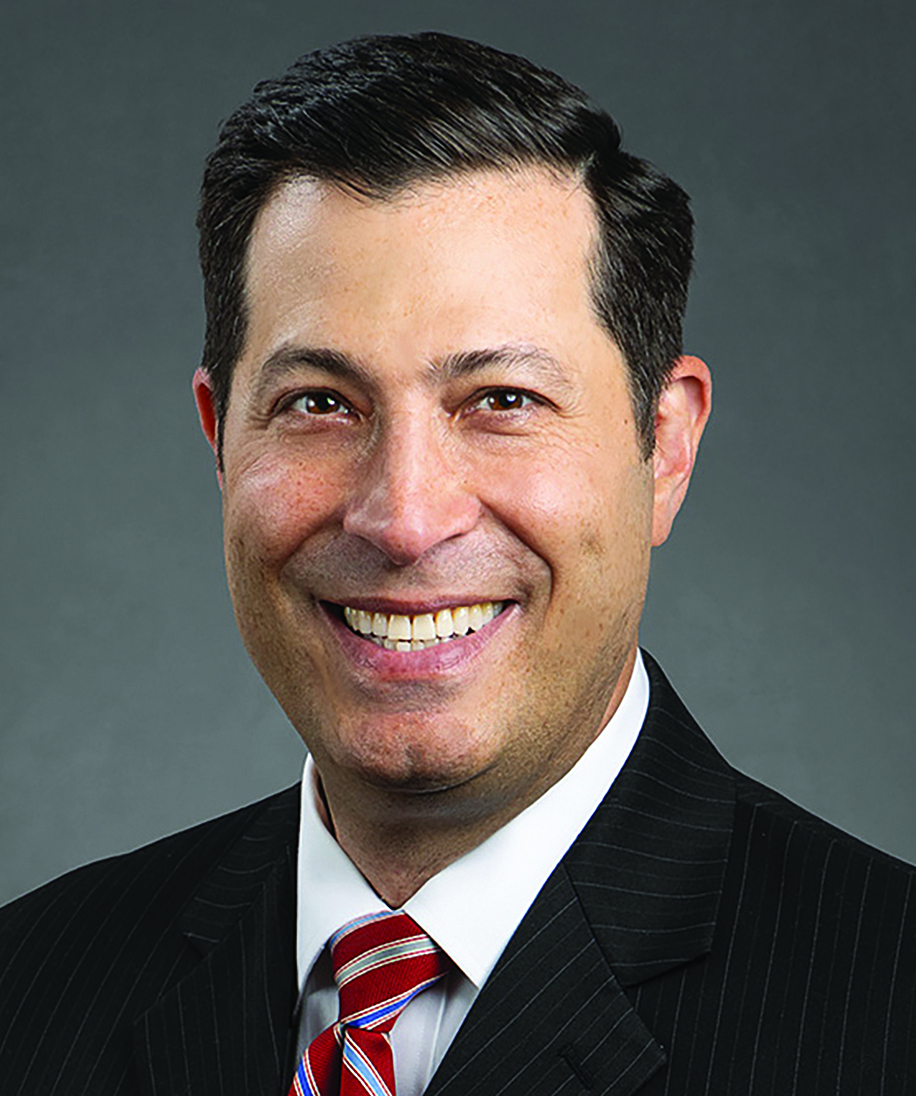Client Alert
"Confirmed" Knowledge of Need for Religious Accommodation Not Required Element in Title VII Case, Says Supreme Court
June 03, 2015
By Neal Mollen & Sean Smith
An employer who rejects an applicant because it suspects the employee may need an accommodation for his or her religious practices violates Title VII, even if the employer has not “confirmed” that an accommodation would, in fact, be required, holds the Supreme Court. EEOC v. Abercrombie & Fitch Stores, Inc., No. 14-86 (June 1, 2015). In a 7-2 opinion authored by Justice Scalia (with a concurrence by Justice Alito and a partial dissent by Justice Thomas), the Court rejected the contention that an employer cannot violate Title VII’s prohibition of religious discrimination unless it “knows” that the employee will require a change in its normal requirements because of the employee’s religious beliefs. An “unsubstantiated suspicion” will suffice.
“Suspected” Need for Religious Accommodation
When Samantha Elauf was interviewed for a retail sales job at Abercrombie & Fitch, she wore a black hijab (a type of headscarf), just as she had done since the age of thirteen. At the time, Abercrombie’s dress code policy prohibited employees from wearing “caps” and prohibited employees from wearing black clothing.
Elauf did not inform the assistant manager who interviewed her, Heather Cooke, that she was Muslim, that wearing the hijab was part of her religious practices, or that she would need an accommodation that would allow her to wear the hijab. Cooke did not mention the ban on headwear, nor was Elauf’s hijab ever discussed.
After the interview, Cooke recommended that Elauf be hired, but she also suspected that the hijab might conflict with Abercrombie’s policy. Cooke therefore mentioned that fact to her direct supervisor and then to her district manager, and also mentioned her belief that Elauf was Muslim and wore the hijab for religious reasons. The district manager told Cooke that she should reject Elauf’s application because the headscarf violated the store’s dress policy. The EEOC thereafter brought a claim on Elauf’s behalf, alleging that Abercrombie failed to accommodate Elauf’s religious beliefs under Title VII.
Assigning the Burden to Raise the Issue of Accommodations for Religious Practices
The district court granted summary judgment to the EEOC on the issue of liability, held a trial, and awarded $20,000 in damages. A divided panel of the Tenth Circuit Court of Appeals reversed and directed summary judgment for Abercrombie, holding that under Title VII, the burden falls to the employee or job applicant to notify the employer explicitly of any religious practices that might conflict with workplace policies, in order to trigger the accommodation process. The Tenth Circuit found that even though Cooke assumed Elauf was Muslim and wore the hijab for religious reasons, Elauf did not affirmatively disclose that fact or say that she needed an accommodation for her religious practice. The Supreme Court, taking note of a circuit split on the issue, granted certiorari.
Suspicion Suffices
Writing for the Court, Justice Scalia first rejected Abercrombie’s assertion that the case should be viewed as a “disparate impact” claim, because its decision was not based on Elauf’s religion itself but rather a manifestation of religious practice (the hijab). Congress, the Court observed, had defined discrimination based on religion to include both adverse actions based on religious beliefs and those based on religious practices. Thus, an adverse action based on a manifestation of religious practice (here, the hijab) is an instance of disparate treatment.
Analyzing the case as a disparate-treatment claim, the Court also rejected Abercrombie’s primary argument: that Title VII liability requires an employer to have actual knowledge of an applicant’s need for a religious accommodation. The text of Title VII, the Court noted, does not impose a knowledge requirement��—unlike, for instance, the Americans with Disabilities Act, which specifically requires employers to make “reasonable accommodations to the known physical or mental limitations” of an applicant.
Instead, said the Court, Title VII prohibits an employee from acting with certain motives. The Court explained:
Motive and knowledge are separate concepts. An employer who has actual knowledge of the need for an accommodation does not violate Title VII by refusing to hire an applicant if avoiding that accommodation is not his motive. Conversely, an employer who acts with the motive of avoiding accommodation may violate Title VII even if he has no more than an unsubstantiated suspicion that accommodation would be needed.
Thus, said the Court, an employer who rejects an applicant because the employer believes (but does not know for certain) that the applicant is an orthodox Jew who will be unable to work on Saturdays may violate the law, because the employer’s desire to avoid providing an accommodation is a motivating factor for his decision.
This interpretation, according to the Court, is consistent with Title VII’s instruction that a complaining party may establish a violation by “demonstrat[ing] that race, color, religion, sex, or national origin is a motivating factor for any employment practice, even though other factors also motivated the practice.” With that in mind, the Court concluded that an unlawful motive might be easier to infer where an explicit request for an accommodation was made, or where the employer knew with certainty that a need for accommodation existed; but “confirmed” knowledge is not indispensable to proving an unlawful motive.
Finally, the Court found nothing exculpatory in the fact that Abercrombie’s “no caps” policy was neutral—that is, that it treated everyone alike, regardless of their religion. Title VII, according to the Court, “does not demand mere neutrality with regard to religious practices . . . . Rather, it gives them favored treatment, affirmatively obliging employers” to provide reasonable accommodations. In other words, “Title VII requires [some] otherwise-neutral policies to give way to the need for an accommodation.”
Unsurprising Result; Curious Analysis
As the nearly unanimous result might suggest, the holding in Abercrombie cannot be seen as a real surprise. At a minimum, Elauf’s hijab and the assistant manager’s belief that Elauf wore the hijab for religious reasons seemed to put Abercrombie on inquiry notice, and the failure of Cooke to disclose the company’s policies to Elauf during the interview so that Elauf could evaluate whether an accommodation would be necessary or ask for one predictably made Abercrombie’s actual notice argument a tough sell. As the Court observed, the text of Title VII does not include a knowledge requirement (distinguishing it from the ADA).
Nonetheless, the Court’s embrace of the “suspicion” standard may be less significant than it appears at first glance. Suppose, for example, an employer rejects a candidate because it suspects that he or she is of a particular faith and may need an accommodation, but turns out to be incorrect about the applicant’s religion, and that no accommodation would actually have been required. Consider the case of an employer who suspects—incorrectly—that an applicant wears his hair in dreadlocks because the applicant is a Rastafarian, and the hairstyle would violate the employer’s grooming policy. If a “mere suspicion” standard applied, as Abercrombie might suggest, one could argue that a violation of the statute has occurred if the applicant was denied a job because the employer suspected an accommodation would be required. Indeed, that is a position that the EEOC and some lower courts have adopted, arguing that an employer may violate Title VII by taking adverse action based on its perception of an employee’s protected status.
But based on Title VII’s explicit language, a violation occurs only where an individual is treated adversely “because of [his or her] religion”; if the applicant is not in fact a Rastafarian, his actual religion played no role in the adverse employment decision. There is no textual “regarded as” protection for mistaken assumptions as there is in the ADA. And indeed, the majority opinion appears to have doomed such a “regarded as” argument by stating that a mere suspicion can lead to a statutory violation “[i]f the applicant actually requires an accommodation of that religious practice, and the employer’s desire to avoid the prospective accommodation is a motivating factor in his decision.” (Emphasis added).
Abercrombie also leaves some nagging questions. The lower courts have held, in a long and largely unbroken line of cases, that intentional discrimination cannot occur unless the decision-maker is aware of the employee’s protected status; otherwise an employer cannot possibly act “because of” the protected characteristic. At least in the context of a religious accommodation case, Abercrombie may be said to erode that principle. But the decision rested, in part, on the fact that Title VII explicitly protects against discrimination based on religious practices as well as beliefs, and on the concept that the statutory duty to accommodate “demand[s] [more than] mere neutrality with regard to religious practices.” No comparable language exists in the statute with respect to other protected classes such as race, gender, or retaliation. It remains to be seen whether and how courts will incorporate Abercrombie into these more typical Title VII contexts.
Likewise, the Court explicitly acknowledged that its holding did not control in cases where an employer declines to provide an accommodation for a practice that the employer does not believe to be religious in nature. In Abercrombie, this was not an issue; the employer suspected that Elauf wore the hijab for religious reasons, and that turned out to be correct. In a footnote to the majority opinion, the Court conceded that it was at least “arguable that the motive requirement itself is not met unless the employer at least suspects that the practice in question is a religious practice.”
Finally, it is also worth pointing out (as the Court itself did in a footnote) that an employer’s duty to provide accommodations for religious practices is not absolute, even when the religious nature of the practices is known and an accommodation is requested. Rather, that duty is to provide reasonable accommodations—and whether an accommodation is reasonable in a given context may be a matter of much dispute. The Court did not consider the issue in Abercrombie.
As a practical matter, Abercrombie provides employers with a valuable reminder that they should train hiring and management personnel to ask good questions in the interview process. If there is one principle for which Abercrombie will be cited by plaintiffs’ attorneys, it is that employer ignorance is no excuse where a reasonable employer suspects that the applicant or employee needs an accommodation for a religious practice. In some situations, this may require managers who suspect the presence of a religious motive for an employee’s behavior to act affirmatively to learn whether their suspicions are correct, and to explore whether and what kind of accommodations may need to be provided.
***
Contributors


